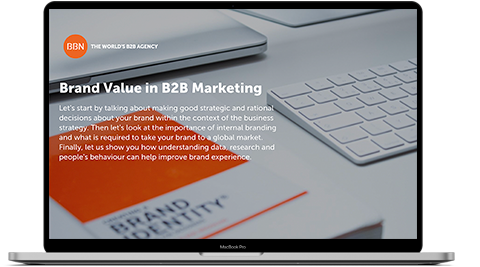Imagine the following: After a methodical and thorough process, you have decided on a differentiated, emotional, strategically grounded recruitment campaign. And you have freed up an appropriate budget to bring it to your prospective employees through all relevant channels, both on-and off-line.
But then one of these possible candidates meets a buddy in the pub who works in your company. He asks him how he experiences these wonderful corporate values of freedom, quality and innovation*, which he has read about, in his everyday life? If he now faces blank looks or contemptuous snorting, the whole nice investment in your recruitment project was wasted, at least as far as this candidate is concerned.
This little story shows the importance of the internal side of Employer branding. If your employees do not know what you claim for yourself as an employer in terms of values, strengths and offerings, or, even worse, if they cannot relate to it, you are wasting a tremendous opportunity. Because if you manage to convey these aspects credibly to your employees, it has two effects: their identification with your company increases together with their motivation for working for you, and you gain multipliers internally and externally.
Mind you, it is not about glorifying their employment. Good money for good work, this logic is absolutely comprehensible, and most employees have a realistic view of what can be expected of them for salary, benefits and perspectives. However, they very much appreciate being taken seriously with their views and observations.
To discuss with them how vision and corporate values are perceived and how they can be practiced even better in the daily worklife – that’s an excellent starting point for your further development as an attractive employer.
Transferring credibility from human being to brand
However, that is easier said than done. The bigger the company, the bigger the distance between shop floor and C-Level offices. Internal events, Intranet, Fireplace discussions are important elements with a far-reaching effect. But in everyday life, a completely different group can come into play for the long-term success: the brand ambassadors. They can credibly carry the positive aspects of the brand into the wider workforce and act as a sounding board for their colleagues, taking up criticism and impulses and sharing them with the management.
What makes the ideal brand ambassadors? They come from all areas of the company. They are communicative, well connected, think constructively and have no fear to talk about critical topics.
Seven Rules for successful Brand Ambassadors in your company
If you have found these candidates, there are some important rules to consider.
- Ensure that their supervisors also understand the task and endorse the commitment.
- Provide a reasonable amount of time. This might only be a few hours per month – but this time should be officially set aside for their task.
- Introduce them to the whole of the workforce so their role and position is understood by everyone.
- Be clear: brand ambassadors do not want to replace the work councils or internal improvement systems.
- Give them a good foundation: Why is your employer brand so important? How do both the company and the employees benefit from it?
- Initiate their exchange: regular (moderated) meetings to share positive experiences and develop new ideas, formats, and actions.
- Show respect and appreciation: these employees make a valuable contribution to your company. This deserves recognition, both materially and intangibly.
The following applies to all points: You have to plan with a long-term perspective. Internal Brand Management needs endurance and a vision for years, not months. Only then can you be sure that the informal chat in the pub matches the image you are trying to build through your paid and owned channels.







